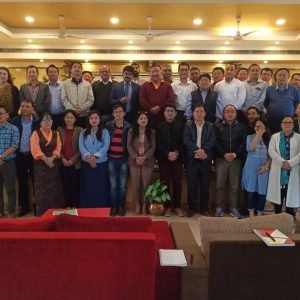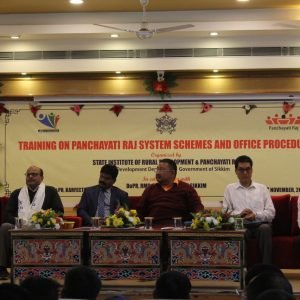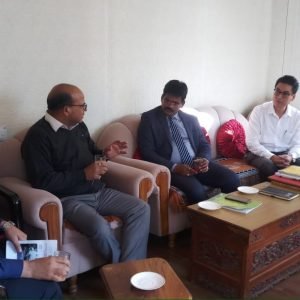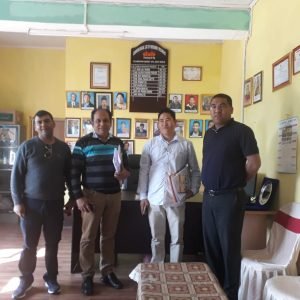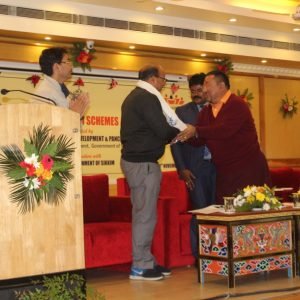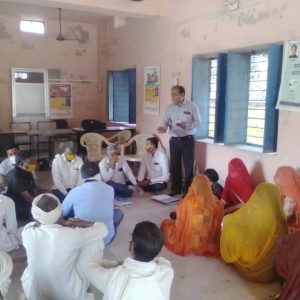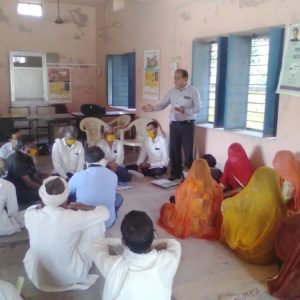Empowering Panchayat Raj Representatives
Empowering Panchayat Raj Representatives (PRI Project)
In the State of Rajasthan the social development indicators are similar to the other Hindi speaking states of India. The reasons may be much i.e. largest States in terms of geographical coverage, predominant history of feudalism, larger percentage of marginalized and underdeveloped households etc. In terms of development, the state of Rajasthan has made significant progress in some sectors in the last few years but still lags behind in many human development indicators like IMR, MMR and quality of education. Tonk is one of the districts of Rajasthan with low human development indicators as compared to the state human development index. Tonk was selected as one of the 17 integrated districts in the country and village planning was conducted in the district. This was followed by collaboration with the NGOs for implementation of an integrated district approach for decentralized planning with active participation of rural communities and the most vulnerable sectors of society. The basic objective was to create demand and provide children and mothers access to all services through an integrated approach, thereby leading to improvement in the human development indicators.
The Project of IDA aimed at Decentralized Planning which is the major process by which the local development has been designed to have greater impact of efforts has been made. The key factor well recognized a key factor in the successful implementation of decentralized planning is capacity-building at the grassroots level and supporting them in visioning and creating interest for real and desired impact. The main purpose of programme is to strengthen PRIs in the performance of their roles and functions and make them active and play an instrumental role in monitoring of services provided by Grassroots organization namely AWC, Sub centres, Elementary School etc. CDECS is working as one of the implementing partner in the Integrated District Approach- Strengthen PRIs and Support in performance of their roles and responsibilities for Decentralized planning and monitoring in Newai & Tonk Blocks of Tonk district covering 83 villages and 19 Gram Panchayats.
Key Purpose & Objectives
The overall purpose is to strengthen PRIs in the performance of their roles and functions and make them active members of the decentralized planning process.
The specific objectives are:
- To identify and remove bottlenecks in the performance of roles and responsibilities by PRIs.
- To create linkages between PRIs, SHGs and the communities with maximum SC/ST population for identification of priority issues that are taken up and addressed.
- To put systems in place for active involvement of PRIs in effective planning, monitoring and implementation of flagship programmes and holding of meetings of Gram Sabhas and Standing Committees on a regular basis.
- To improve communication between PRIs, block and district level administration and district functionaries that they supervise.
- To establish a self driven system of planning, implementation, monitoring and reporting at Gram Panchayat level.
Major Activities & Tasks
The specific Tasks under the project will be:
- Leading the process of mapping and prioritization of geographical location of SC/ST pockets in blocks, status of service delivery and indicators in areas of education and health.
- Motivating PRIs for actively participating in monthly Gram Panchayat Quorum meeting and facilitating monitoring of activities and quality on a set of identified issues.
- Making initial contact with SHGs members and establishing linkages with PRIs to facilitate participation of SHG representatives in monthly GP meetings for planning and monitoring activities.
- Motivating PRIs and the community to participate in Gram Sabha meetings discuss priority issues and include proposals in district plans.
- Support PRIs in implementation and monitoring of major flagship programmes with special focus on:
- Growth Monitoring
- School attendance, mid-day meals, school sanitation etc.
- Participating and motivating PRIs to participate in Block level review meetings to facilitate identification of priority issues by PRI members and seek solutions
- Creating linkages between block and district level PRIs and administration to facilitate addressing of priority issues that cannot be solved locally.
